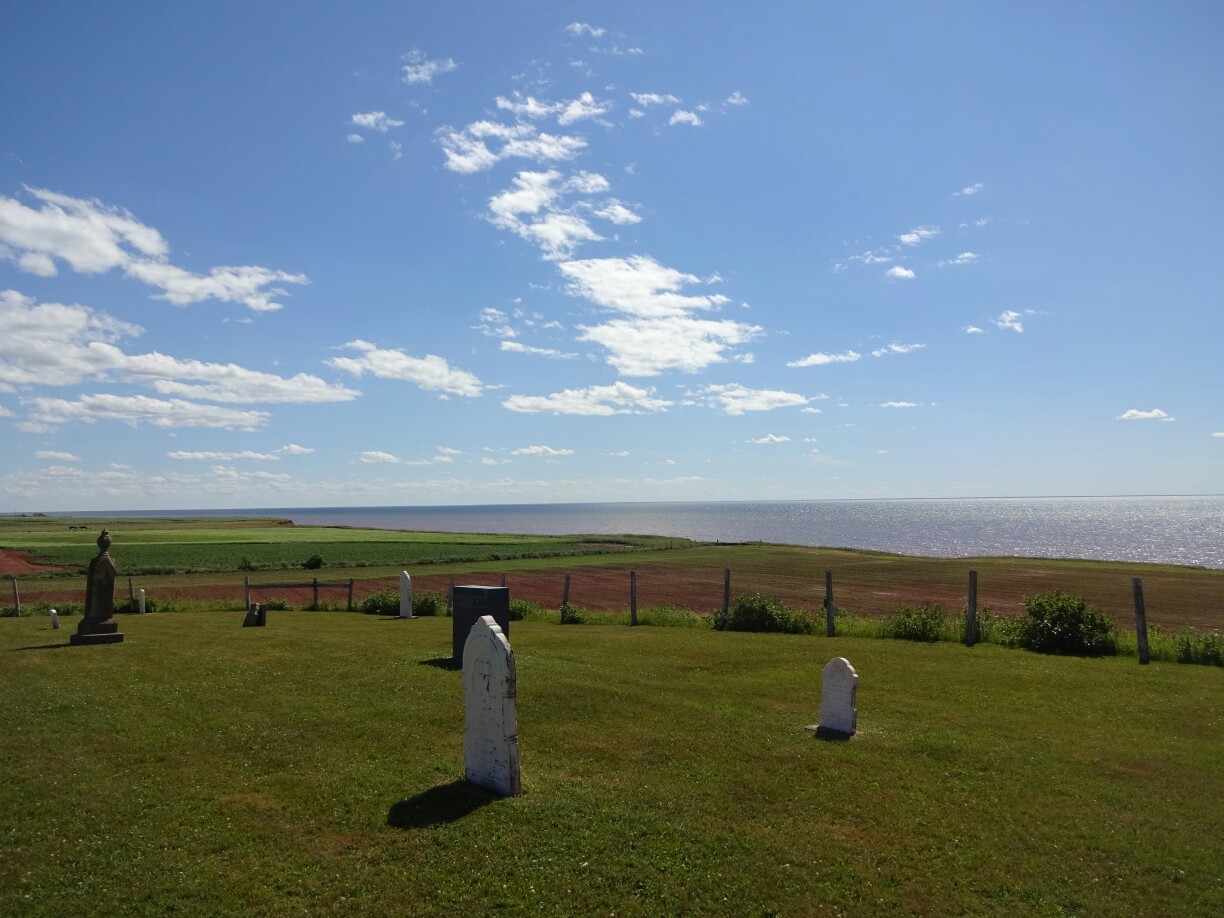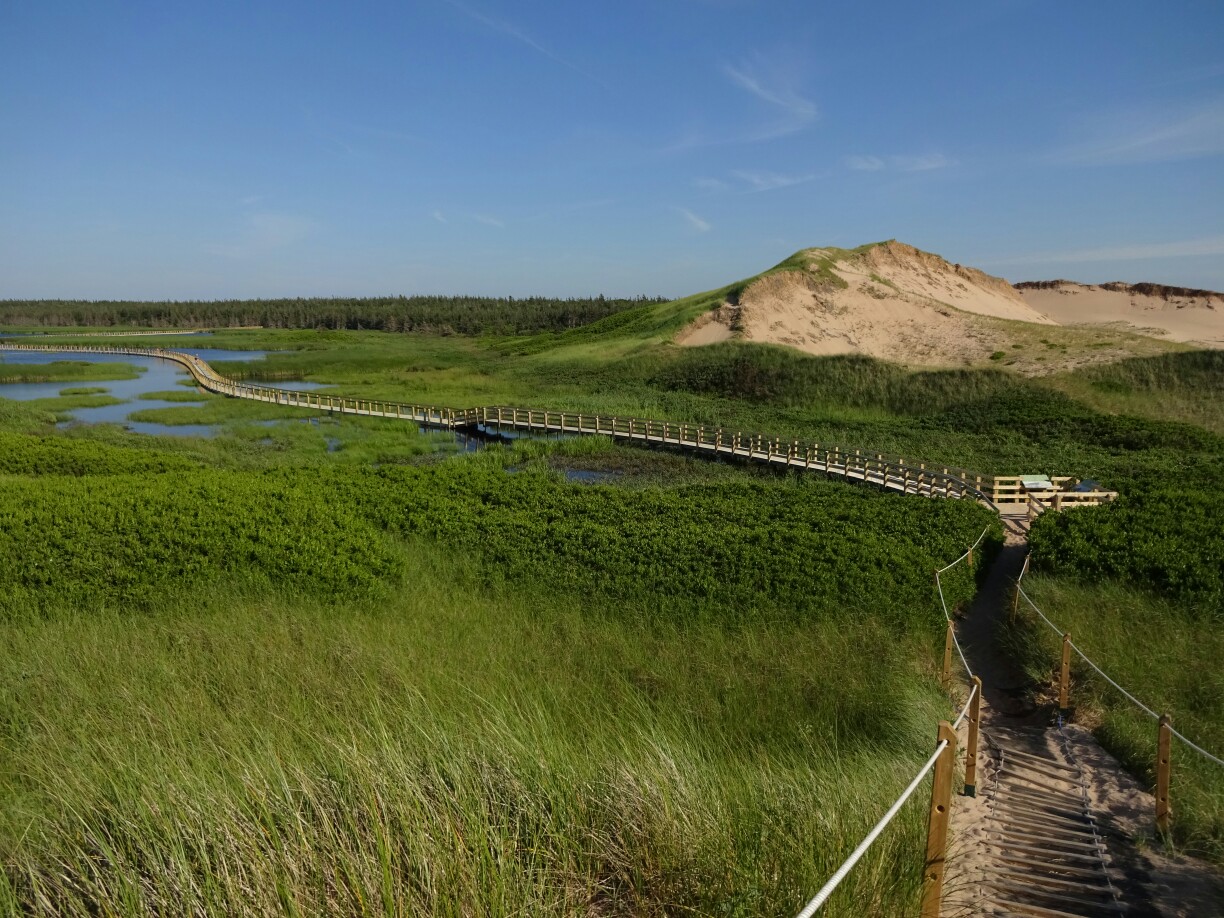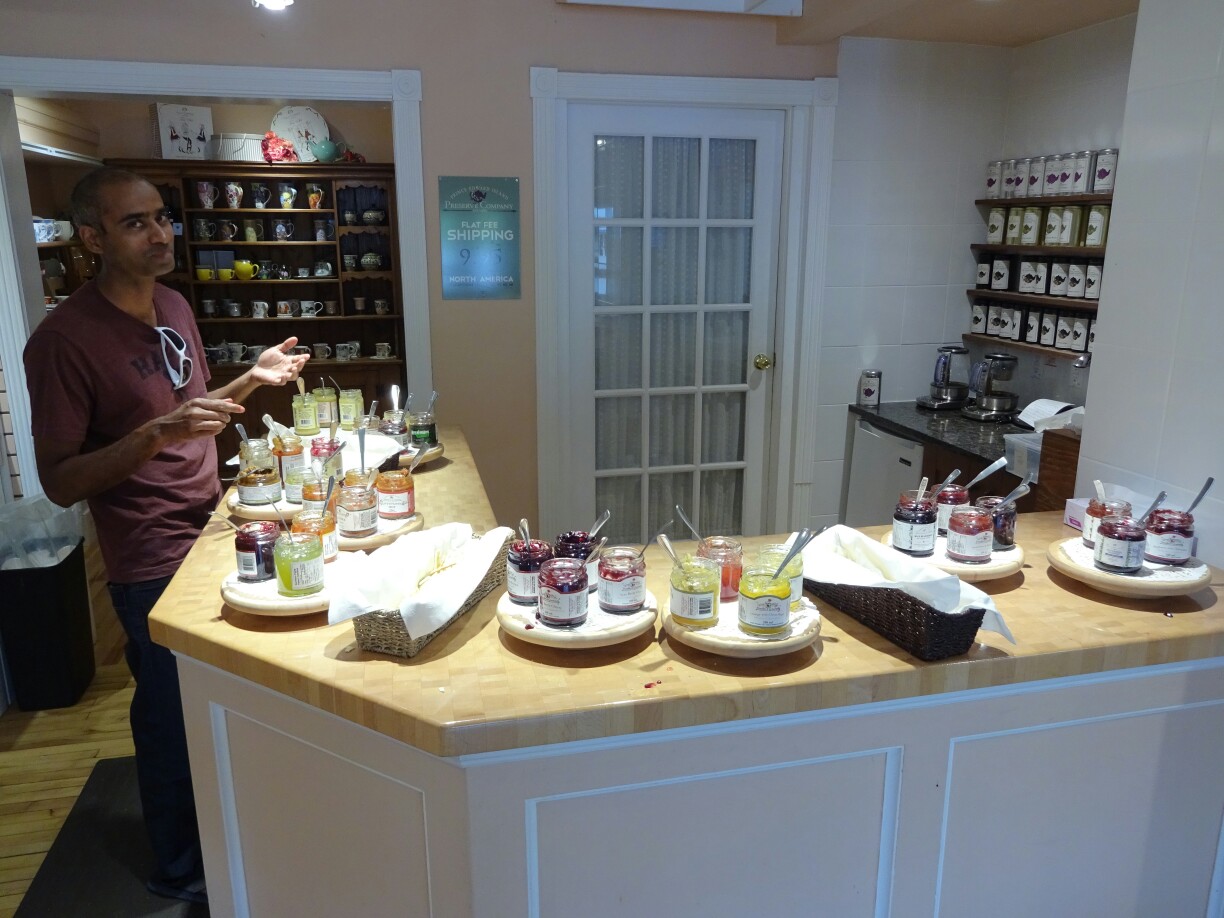After Dave and Anne had left for their camping trip, we moved our base to Charlottetown for the next two days. And even when they were not around, we were able to stay at their townhouse, thanks to the great Canadian hospitality! With its 42.000 people Charlottetown is the biggest city on the island and also the capital of the province. For our further exploration of the western part of the island it meant that we were saving about an hour’s drive each way.

Since we hadn’t found the small rocky cove the day before, we tried our luck again. This time we were more successful. We parked our car close to the beach and walked the short distance to the “Thunder Cove”. As we were getting closer, we could see that this was the spot that we were looking for. The fine red sand had turned into red sandstone, which is slowly eroding being exposed to the sea. It invites to take off the shoes and explore some more, where the water level makes it less easily accessible.


On the way back we took the longer road that followed the southern shore of the central part of the island. We found more red and white striped lighthouses and rolling fields of potatoes, for which PEI is also known for. In the distance we could still see the dark clouds, which had been gathering all day above Charlottetown. And just when we had reached the house it started pouring rain like there was no tomorrow. The soundtrack was completed by the deafening thunder as the lightning struck somewhere close by and the firefighters came rushing in to check on the neighbours.

The next day there were no traces left of the thunderstorm from the night before, except that our car was now clean and shiny as if it was brand new. This did not last very long, as we had planned to drive up to the northern tip of the island. There, the “North Point Lighthouse” is warning incoming ships about the large reef just below the surface. At low tide it is possible to go and explore it. That’s what we wanted to do initially, but I had somehow looked up the tides for a different location, so that the reef was completely covered by water when we got there.

But not only the shallow water led to lots of whitecapping on the ocean. It was also the wind that was constantly blowing as a strong breeze. And since this is the norm and not an exception, they have decided to make use of the wind by putting up numerous wind turbines, turning the whole area into a wind farm. A short interpretive trail leads along the steep red cliffs at the base of the tall white towers. And despite the constant sound of the blades cutting through the wind, it makes a great picnic spot with a fantastic view!


Back at the car we decided to follow “Highway 14”, a small road that follows the shoreline all the way to West Cape. Here, a square black-and-white tower was waiting for us to be added to our collection of lighthouses. The beach next to it tried convincing us to dip into the water, but air and water temperature were much colder than the day before, so instead we jumped back into our car and headed back to Charlottetown to spend our afternoon there.


The downtown area of the capital is quite small, so had plenty of time to walk up and down the main street to the harbour and back in search for some rum cake for Raghu. He wanted to take some back to Calgary and had missed the chance to get them in Halifax. Now he had to accept the fact that they were much smaller and more expensive over here. At least we could still get the world’s best ice cream from “Cow’s creamery”, which is originally from the island!
















